Don’t miss the exhibition by Pallavi Paul at Berlin’s Gropius Bau! In her first major institutional solo exhibition the Indian artist explores not only her impressions of the COVID-19 pandemic, but also the big questions of human existence.
Pallavi Paul: Truth is never not in conversation with its shadow
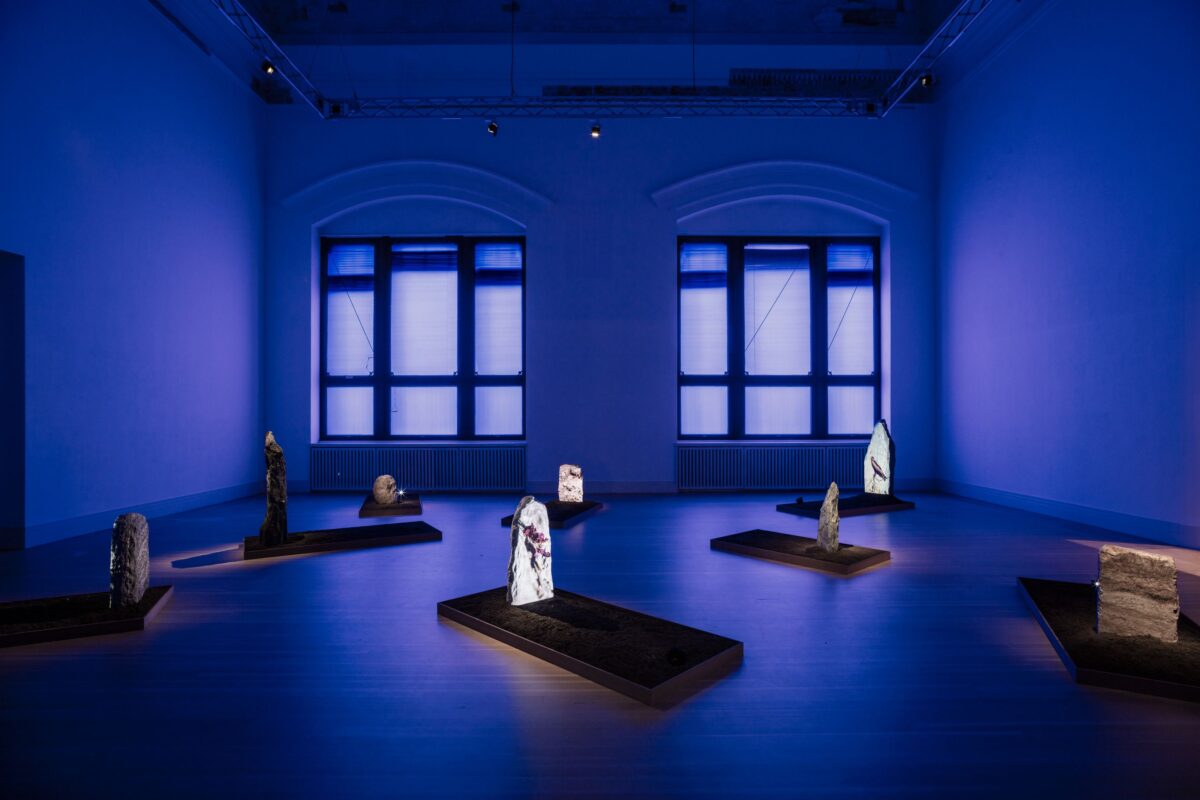
Salt Moon, Installationsansicht, Gropius Bau, 2024, © Pallavi Paul, Foto: Luca Girardini
Warm sunlight falls through high windows, the laughter of people on Berlin’s streets comes in, and the room with half-finished works seems calm and peaceful. On the day of our interview, the atmosphere of Pallavi Paul’s studio as artist in residence at Berlin’s Gropius Bau, stands in stark contrast to the events she references in her work. After all, life goes on. Even though it stood still not long ago.
It’s been less than five years since the world was held in the grip of the Covid pandemic. India, the homeland of Pallavi Paul, was particularly hard hit. Now, she processes the experiences of that time and the profound themes behind them in the exhibition “How Love Moves,” which will be on display at Gropius Bau until 21st July 2024.
In her show, Pallavi is not only concerned about the pandemic as such, but about the regimes of “truth” that are produced and sustained in public life. Illness is not a metaphor to her, but an ethical, spiritual and biopolitical phenomenon, in Berlin, New Delhi and beyond.
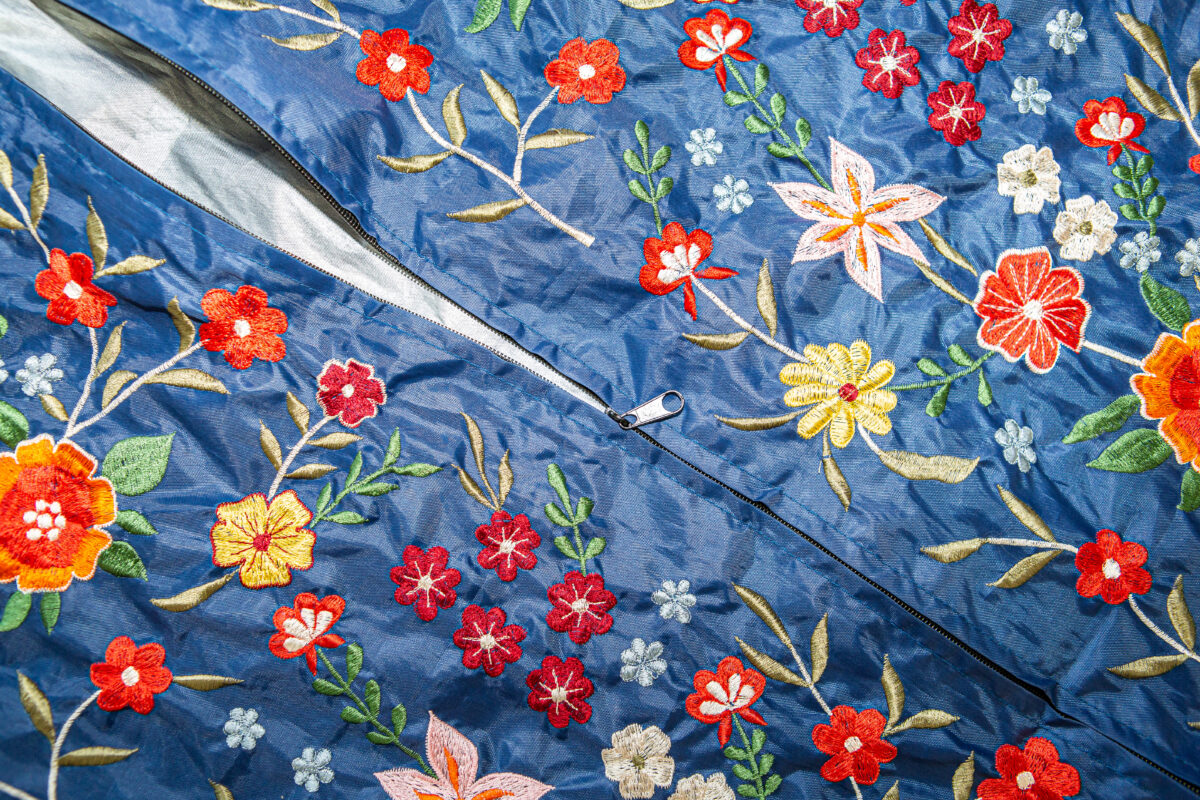
Trousseau, Detailaufname, 2023, © Pallavi Paul, Foto: Laura Fiorio
Fräulein: “How Love Moves” is your first major, solo institutional exhibition. What is the meaning behind the title?
Pallavi Paul: Love is a very strong force with many layers. In love, we belong. But it also challenges us. And when we think about grief, it’s basically love which doesn’t know where to be put. I wanted to think about all its facets as openly and fearlessly as possible. Which also took me to the zones of politics, collective memories and future visions. All of them come together in this exhibition.
Speaking of politics: How do you view the state of our world, and where do you find hope?
What is happening in the world right now is deeply painful. Sometimes, we see images and think: How much more can we endure? But what also shows then is the inspiring resilience of people. The way in which they show up when everything else – government, institutions, or even communities – fails them. For me, it’s obvious: What lifts them up again is love.
“Grief is basically love that doesn't know where to be put.“
Although it deals with fundamental human emotions, the exhibition is very much rooted in current events. Do you pursue an activist agenda with your art?
I am not an activist. I have huge respect for activists, but their codes and methods are different from what I do. As an artist, I can offer people something else. My role is to let them feel whatever they are feeling – without judgement and without guiding them too much. I don’t know the solution to our issues. But I provide a space for imagination and contemplation. One way to be more humane and to deal with any problem, is to take a pause from the noise around you and really feel the complexity of all emotions.
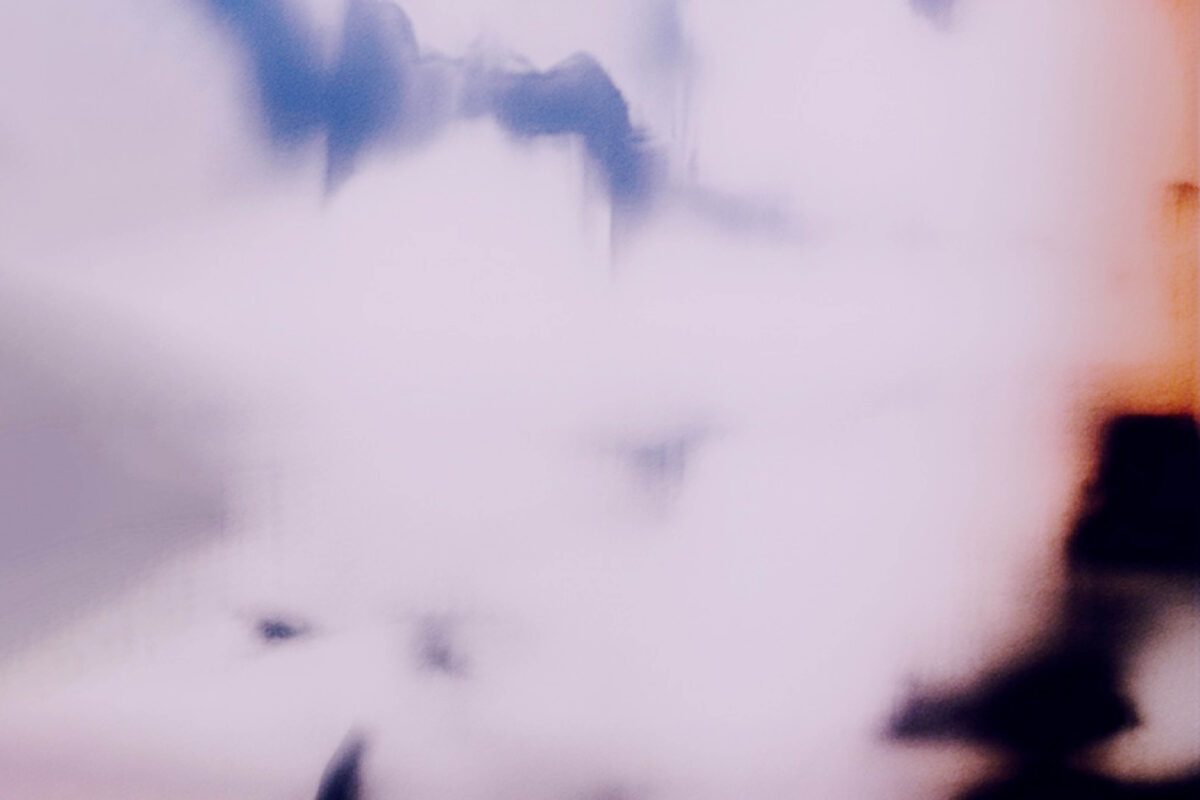
Changing Places in the Fire, Filmstill, 2022
Can you tell me more about the connections you draw from love, grief and the search for truth, to politics, where these themes seemingly have no place?
Love is not a stupid thing. We’ve been taught to not take it seriously when it comes to certain fields like politics. To mask it with reason and logic. But, for me, it’s exactly what we need in these discussions. Love is the amniotic fluid. It’s the womb in which things can grow and develop safely.
My training as an artist was very practical. I have a PhD in academic film studies. So it’s not like I cannot speak the language of hard facts. But seeing so much destruction and suffering around me during the pandemic showed me that the language of reason will not suffice.
You were in India during the time of the pandemic. How did you perceive the situation?
It was traumatizing. Delhi is a gigantic city with millions of inhabitants. During Covid, everyone knew someone who had died. The rivers were clogged with dead bodies. There was no time and space for funerals anymore. Death workers and doctors were pushed to their limits. Some of them collapsed and died of exhaustion.
“We’ve been taught to not take love seriously when it comes to certain fields like politics. To mask it with reason and logic. But, for me, it’s exactly what we need in these discussions.”
But, this moment of great loss and pain was denied by the extreme right-wing government that is in power right now. It cheated the people shamelessly to cover up its own mistakes. It was said, for example, that nobody in the hospitals died because of oxygen shortage. Still, these politicians have the approval of many people, who share their bigotry. It’s absurd, because they suffered during the pandemic just like everyone else. It was as if they were constantly building their own coffin, just because they didn’t want to agree with the other side.
The mass death in our cities was also a challenge to our memory. How will we remember the people who officially hadn’t died, or at least not in the way it actually happened? In my work, I wanted to deal with the question of truth. When official documents deny that something happened, how can we collectively keep memory alive?
So, there were parallel worlds: the world of official press releases and the daily reality of the people. Isn’t it insane how truths can be constructed today as needed?
Social media is full of images, but they have no director or author. They are just fragments. You don’t know where they come from and with what intention they were created. Still, they shape public opinion. How can you deal with this as an artist? The history of art is so much about the individual artistic voice and the artistic authorship. People of my generation and the ones who come after us will have to rethink these concepts.
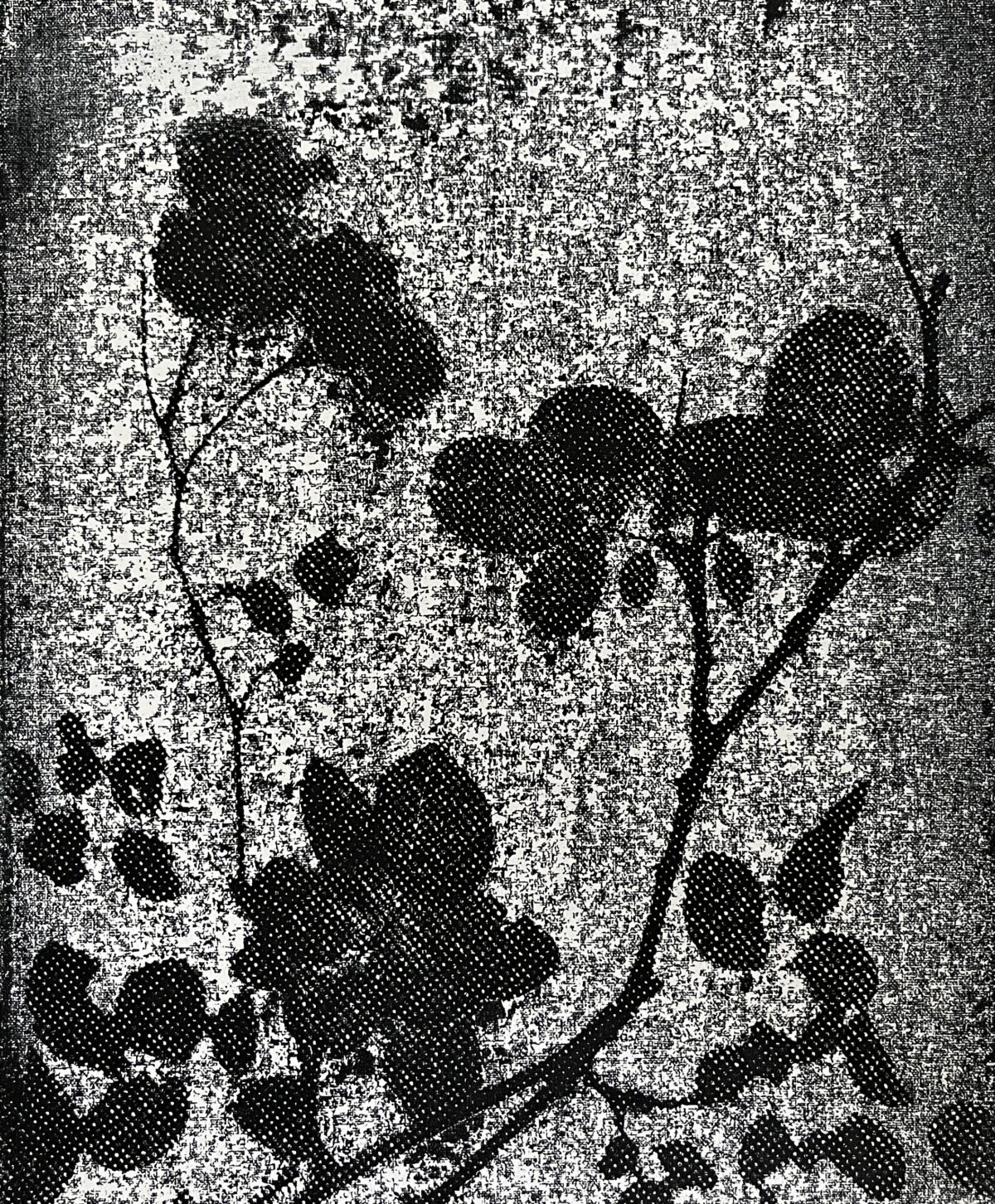
Everything is still damp (series), Siebdruck auf Schleifpapier, 2024, © Pallavi Paul
How do you personally view truth? Do you believe it exists at all?
At best, truth is a choreography. I won’t say that there is no such thing as truth in the world. But I also think that truth is never not in conversation with its shadow. That’s where the interesting stuff happens.
Do you mean another perspective from which to look at the same question or issue?
Over a period of time, what we understand as truth, changes. Certain experiences can upturn everything you thought you knew. Also, sometimes things happen that confirm what we thought we knew all along.
That may also be because we’re in a bubble where we’re constantly being affirmed in our opinion. That seems to be a fundamental problem of our time. We, as a collective, can no longer agree on objective information; instead, everyone lives in their own truth bubble. This prevents us from having a meaningful exchange.
I feel what we are losing nowadays in public life is respect. People are spitting on each other, abusing one another. The tone is harsh. It has to do with the anonymity of social media where you can say the worst things to someone and not be accountable. This will, over a period of time, poison the way we are leading discussions.
“Social media is full of images, but they have no director or author. They are just fragments. You don’t know where they come from and with what intention they were created.”
In addition, we all are becoming more and more socially isolated. The lens through which we see the world and politics has become a deeply personal one. As a result, people feel triggered or provoked by everything. Back in the days, people were sad or disappointed, but not every comment was perceived as personal assault. The social climate was rather constructive than destructive. Now, conversations often don’t even take off because people have already decided for a standpoint.
Does that potentially prevent the progress that many wish for?
Let’s look at the history of the civil rights movement. It was very difficult for people to mobilize supporters because the establishment was against them. So, the aim was to find alliances with the people and communities that were in power. Can you imagine the Black civil rights movement becoming successful without finding alliances with white people? So, I wish for more regulated spaces – not state, but community regulation – which are specifically designed to make people talk to each other.
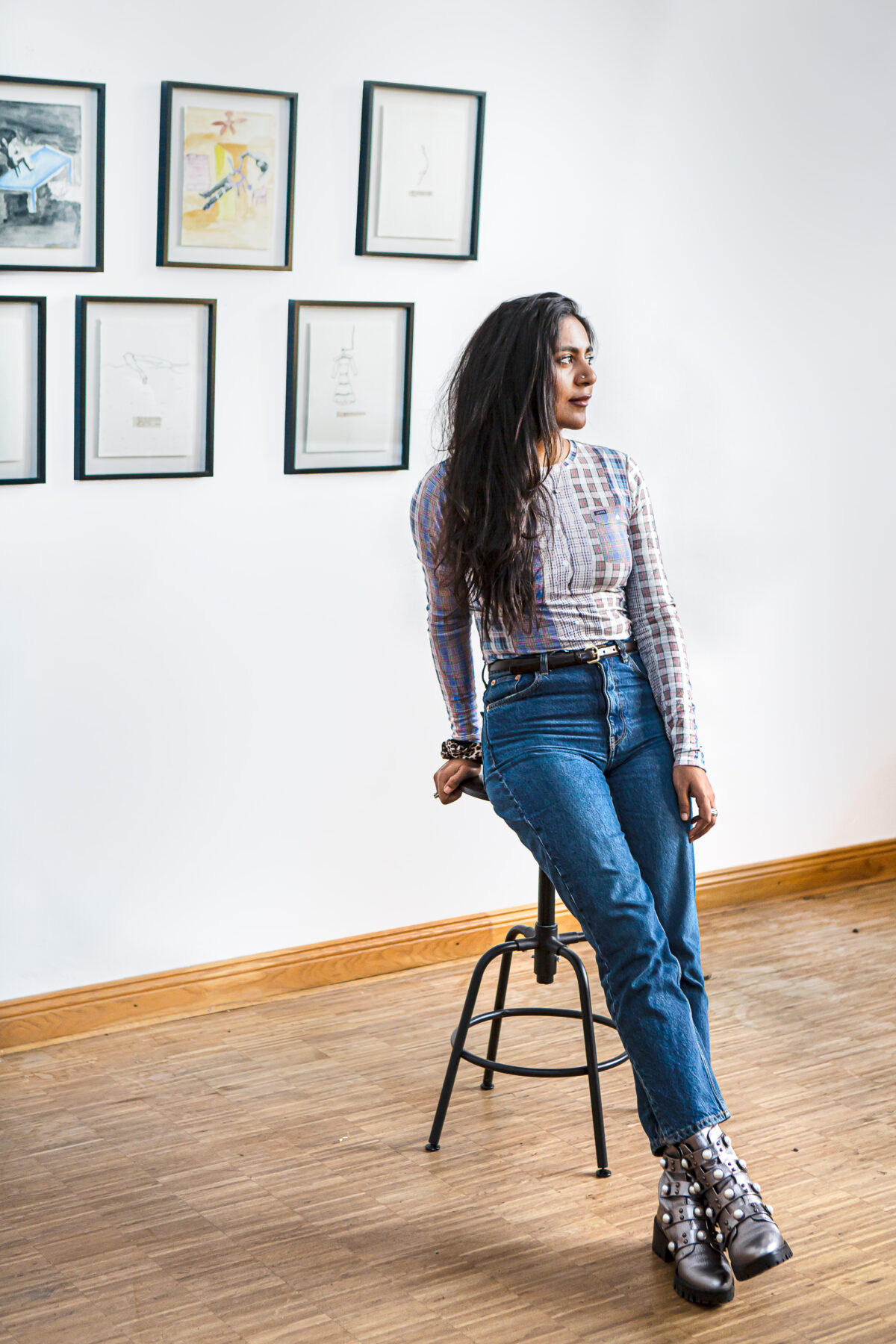
Portrait, 2023, © Pallavi Paul, Foto: Laura Fiorio
Speaking of dialogue: In your exhibition at the Gropius Bau, you demonstrate how various themes can provide points of connection. For instance, you build a bridge between the contemporary health-care crises to the historical echoes of tuberculosis in early 20th century Germany.
During my work on the exhibition, I thought about the breath a lot. Breath has moved between histories and geographies to pose questions and to create solidarities. I started to research about tuberculosis and filmed a video in one of the many sanitariums around Berlin. I also discovered a beautiful book by an old factory worker. He was taken away from his wife and his children and sent to this sanatorium. He talks about poverty and what it does to people and their lives. The soundtrack of the film are German lullabies. And I combined it with archival material from Hitler’s television broadcast – scenes that focus on public health and the body. All these aspects are addressed in the exhibition, reflecting nowadays’ stories from India.
That’s interesting because it shows how history and what we as humanity have to go through repeats itself.
At the end of the day, we are all human beings. With different experiences, but always with connection points. We suffer equally, and we can draw the same lessons from suffering. I guess the world has changed due to Covid. I don’t know whether for the better or for the worse. It made us more aware of our disparities concerning healthcare and wealth, for sure. But, at the same time, it was unifying to share the same experiences of loss.
“When official documents deny that something happened, how can we collectively keep memory alive?”
It definitely changed the way we communicate. I think there was already a development because of social media, but Covid was like the trigger for that development to go very fast. Often, in a bad way.
It’s been a dark time. But you also saw people reaching out to one another for help. It was hopefully also a time that produced new ways of sensing. I’m an optimist. After all, if I give up, then there’s no point in doing anything.
And you are a person who believes in love. As such, you would never give up.
Interview by Ann-Kathrin Riedl
Pallavi Paul
„How Love Moves“
22.3. – 21.7.2024
Mon, Wed, Thu, Fri 11:00–19:00
Sat, Sun 10:00–19:00
Tue closed
Visit the website.
